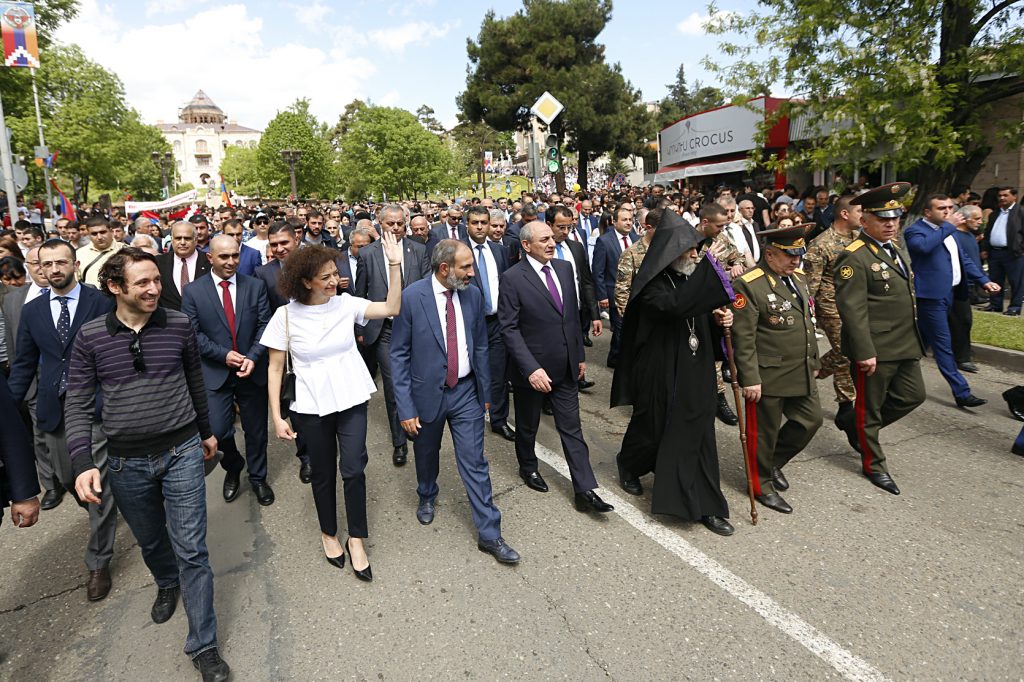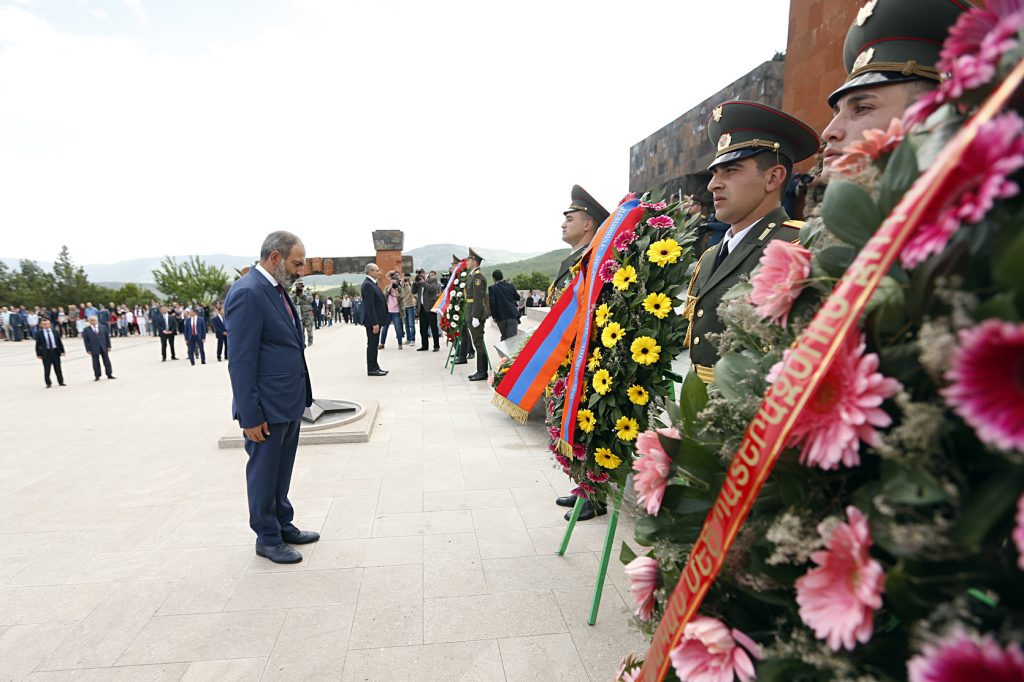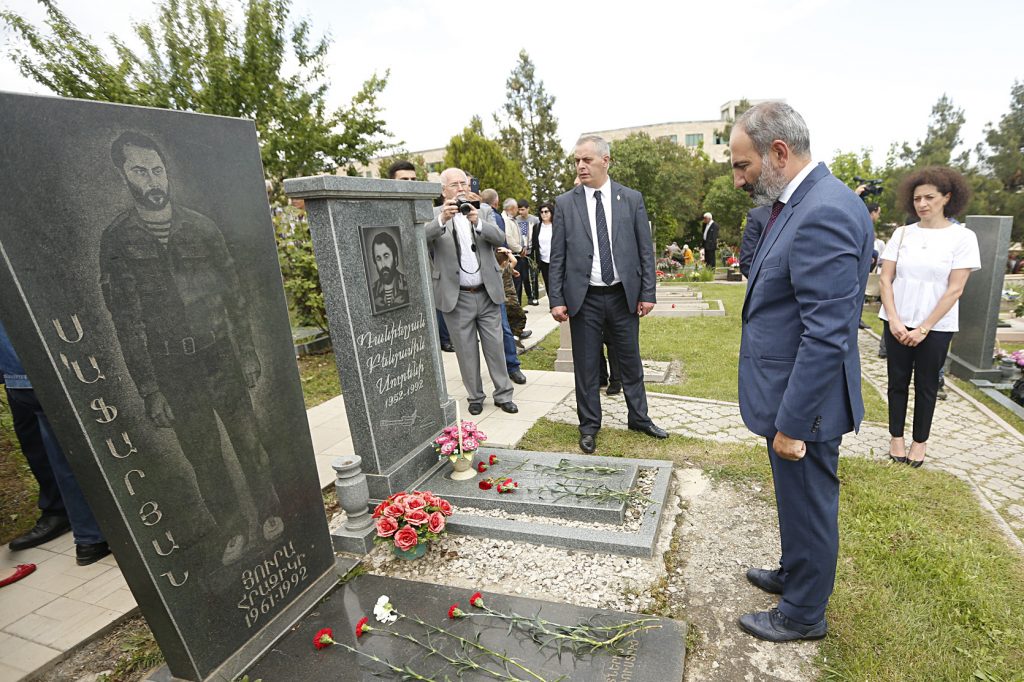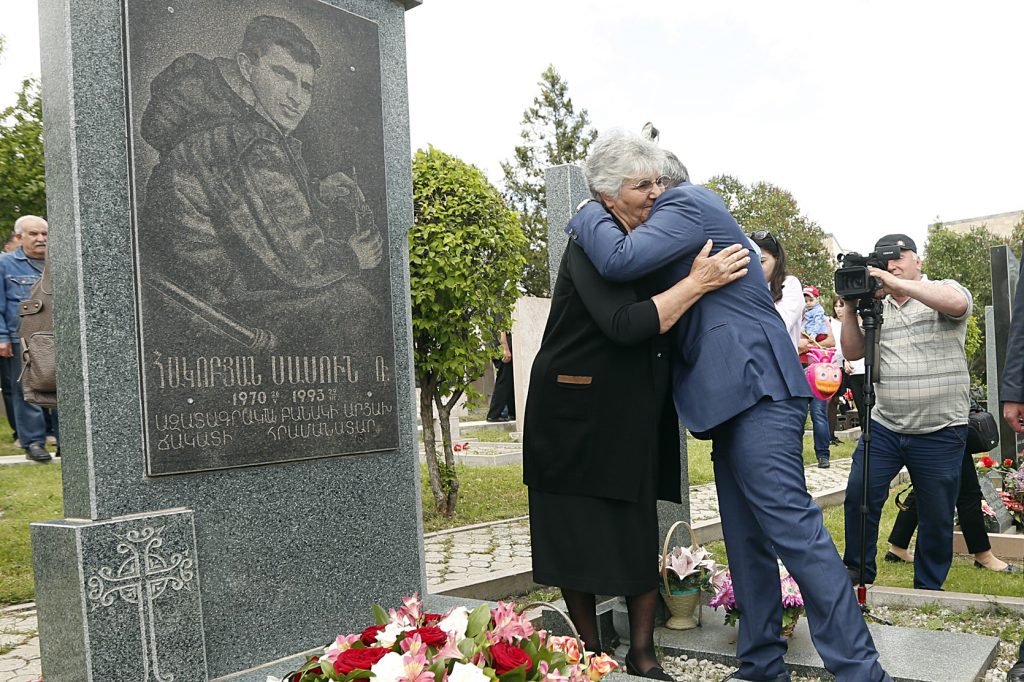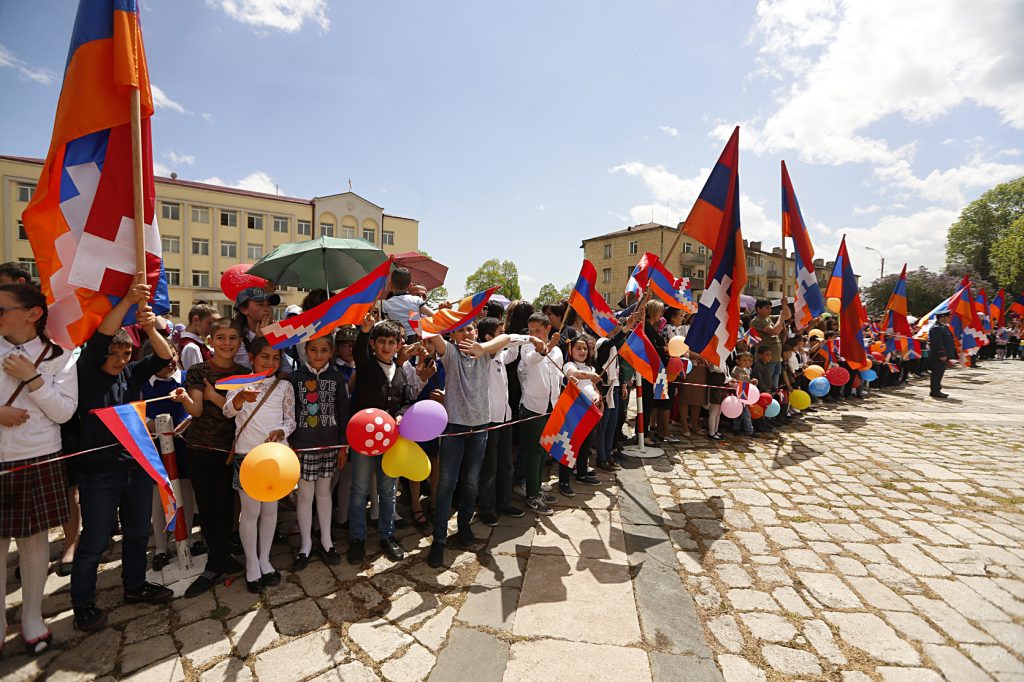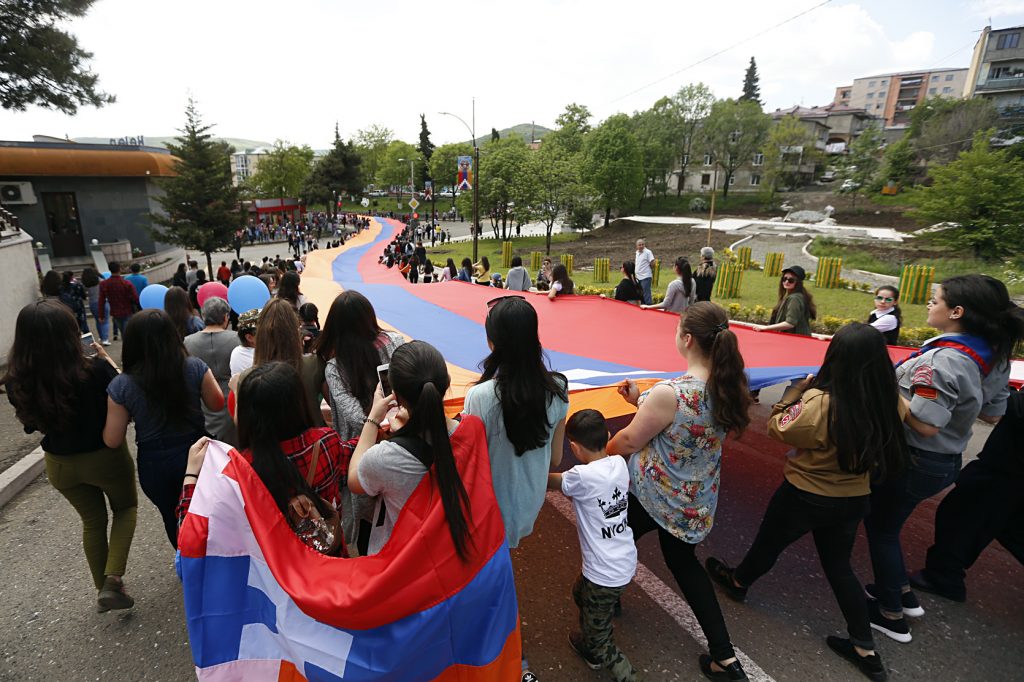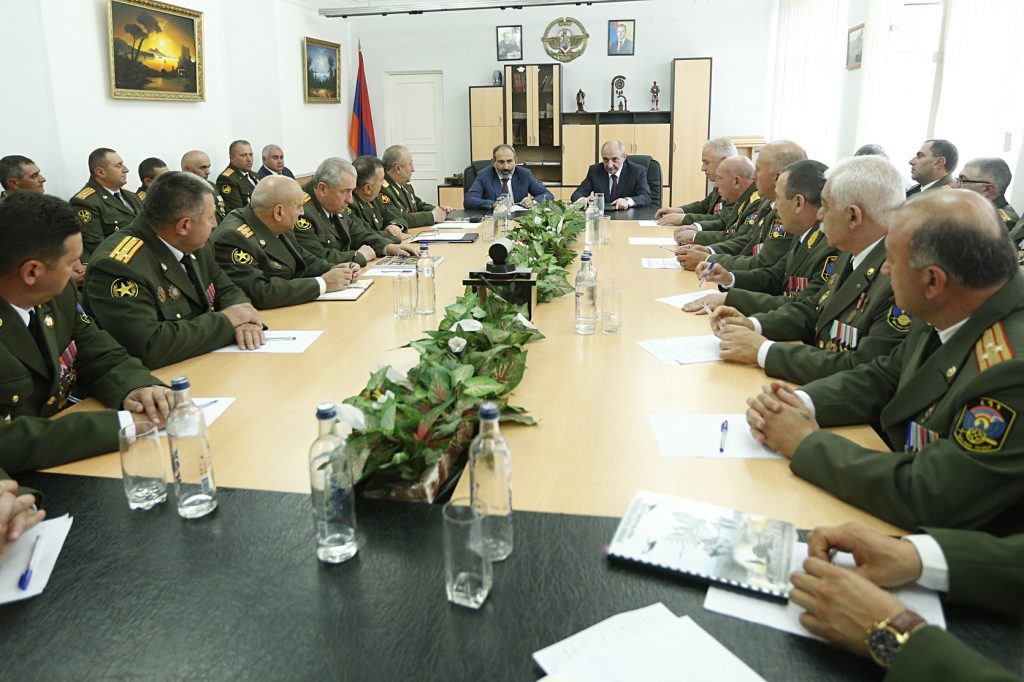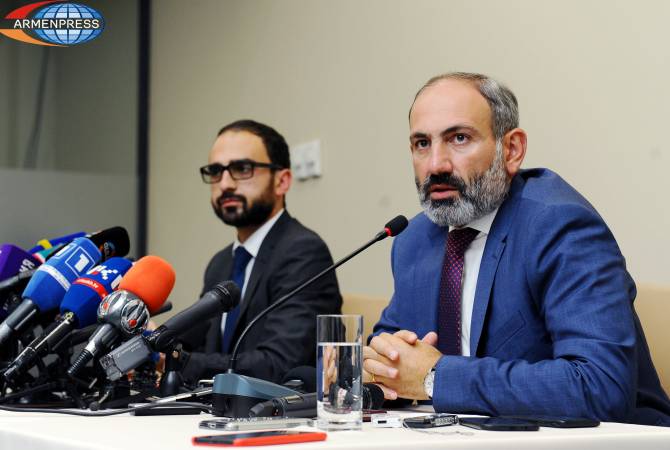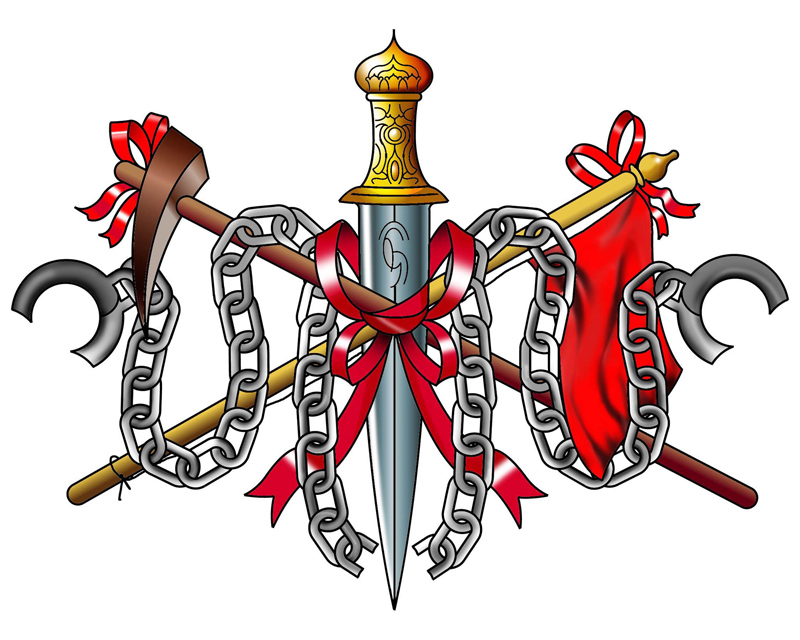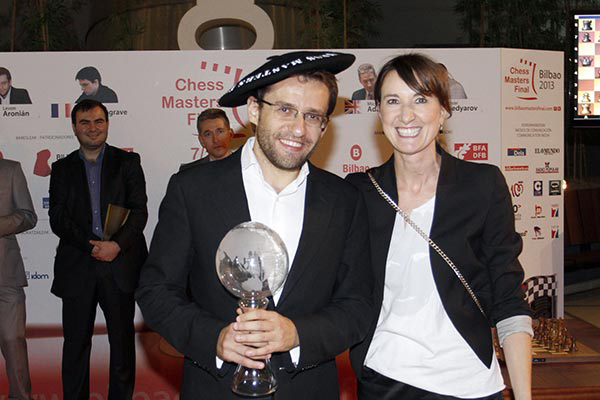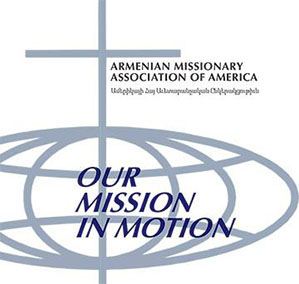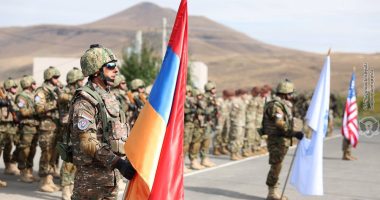Calls for Direct Participation of NKR Leaders in the Conflict Settlement Negotiations
STEPANAKERT — Prime Minister Nikol Pashinian called for Nagorno-Karabakh’s direct involvement in Armenian-Azerbaijani peace talks when he visited Stepanakert on Wednesday one day after being elected to Armenia’s top government post.
He met with Karabakh’s political and military leaders and attended official ceremonies to mark the 26th anniversary of a key Armenian military victory during the 1991-1994 war with Azerbaijan.
Joined by hundreds of local residents, Pashinian and Bako Sahakian, the Karabakh president, marched to a war memorial in Stepanakert. The two men laid flowers there before meeting with the top brass of Karabakh defense army.
The army commander, Lieutenant General Levon Mnatsakanian, briefed Pashinian on the situation along the heavily militarized “line of contact” around Karabakh. Participants of the meeting also discussed ways of “improving mechanisms for deterring the enemy,” reported the Armenian premier’s press office. Pashinian praised the combat readiness of the Karabakh Defense Army, it said.
Pashinian went on to hold separate talks with Sahakian, voicing “full and unconditional support” for the Karabakh leader.
“I am ready to negotiate with Azerbaijan’s president within framework of the OSCE Minsk Group co-chairmanship,” he said in his opening remarks at the talks. “But I also think that that negotiation format cannot be considered full-fledged until one of the parties to the conflict, the leadership of Artsakh (Karabakh), participates in it.
“I will dare to say that this is probably one of the reasons why negotiations on resolving the conflict have still not had desired results. It’s hard to imagine that any negotiation held in an incomplete format can yield results.”
“Therefore, our efforts must be aimed at ensuring that the Republic of Artsakh and its government are internationally recognized as soon as possible,” added Pashinian.
For more than two decades Azerbaijan has refused to directly negotiate with the Karabakh Armenians, saying that Karabakh is an Azerbaijani territory occupied by Armenia. Consequently, peace talks mediated by the Minsk Group’s U.S., Russian and French co-chairs have involved the presidents and foreign ministers of Armenia and Azerbaijan.
Over the past decade, the three mediating powers have advanced a framework peace accord calling for a gradual solution to the Karabakh dispute. It would start with Armenian withdrawal from virtually all seven districts around Karabakh that were fully or partly occupied by Karabakh Armenian forces in 1992-1994. That would be followed by a future referendum on Karabakh’s internationally recognized status.
The administration of former President Serzh Sarkisian said throughout his decade-long rule that this peace formula is largely acceptable to Yerevan. Sarkisian and his Azerbaijani counterpart Ilham Aliyev pledged to revive the peace process at their last meeting held in October 2017. Their foreign ministers subsequently held two rounds of follow-up negotiations.
Pashinian has yet to say publicly whether he is ready to seek a Karabakh settlement based on the mediators’ existing peace proposals. Speaking in the Armenian parliament on Tuesday, he said only that the Karabakh Armenians’ right to self-determination must be at the heart of any peace deal.
